Our Library
Explore our publications, from research papers and series to educational materials, covering all aspects of conflict transformation and peace promotion.
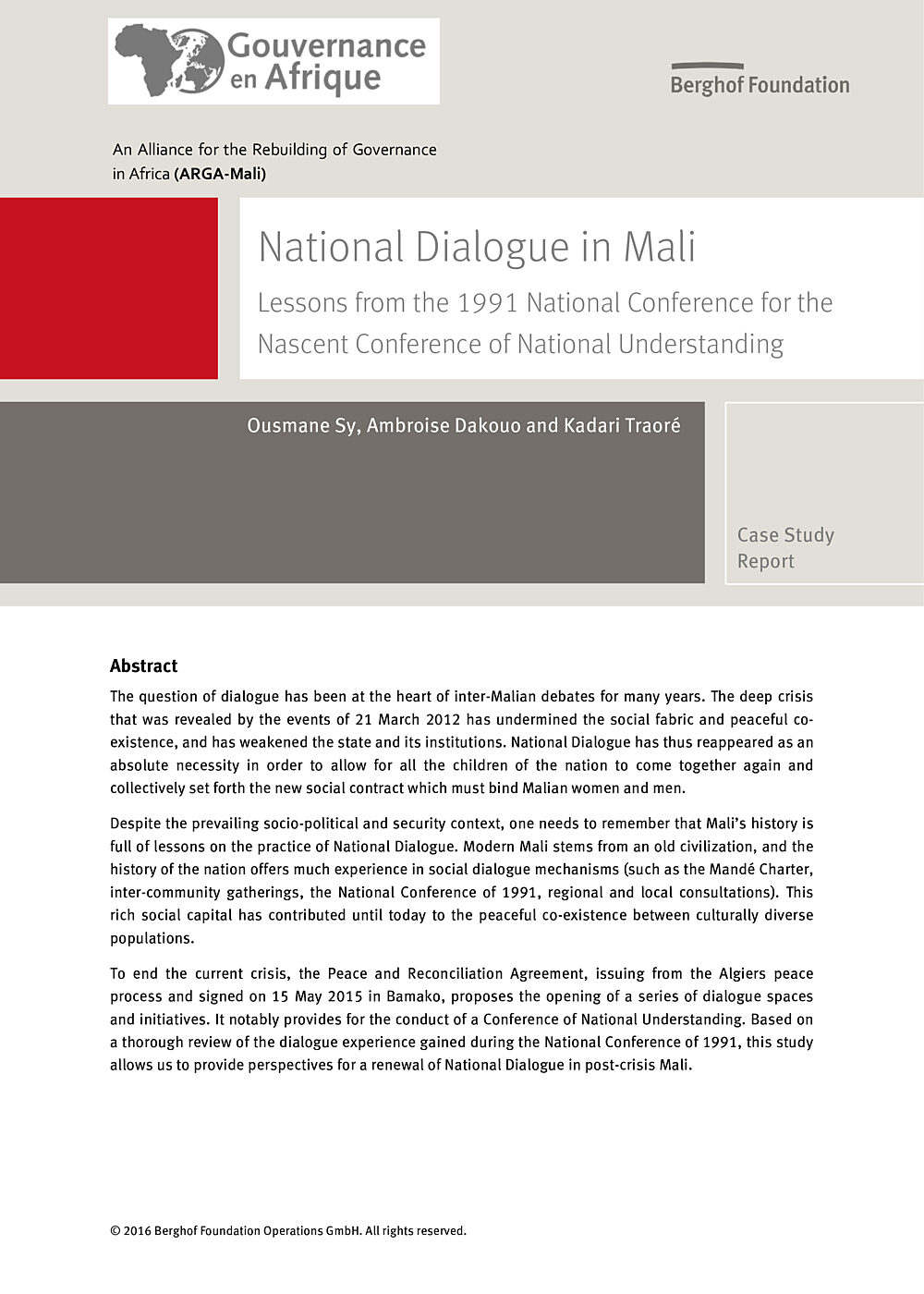
National Dialogue in Mali: Lessons from the 1991 National Conference for the Nascent Conference of National UnderstandingNational Dialogue Handbook: Case Studies
The question of dialogue has been at the heart of inter-Malian debates for many years. The deep crisis that was revealed by the events of 21 March 2012 has undermined the social fabric and peaceful co-existence, and has weakened the state and its institutions. National Dialogue has thus reappeared as an absolute necessity in order to allow for all the children of the nation to come together again and collectively set forth the new social contract which must bind Malian women and men. Based on a thorough review of the dialogue experience gained during the National Conference of 1991, this study allows us to provide perspectives for a renewal of National Dialogue in post-crisis Mali.
- Year2016
- Author(s)Ousmane Sy, Ambroise Dakouo, Kadari Traoré
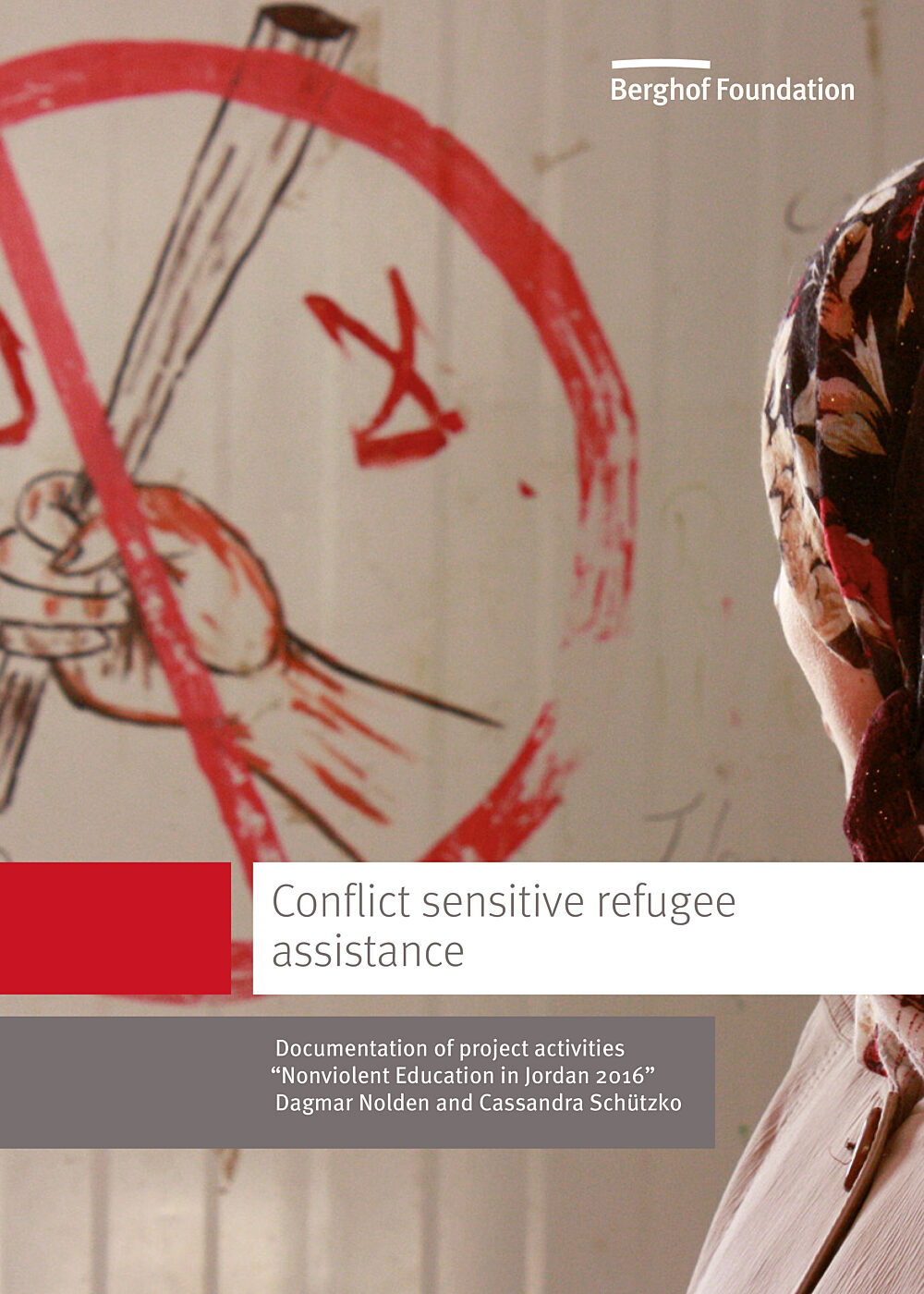
Conflict sensitive refugee assistanceDocumentation of project activities “Nonviolent Education in Jordan 2016”
Today, conflict sensitivity is a renown and established concept in the fields of education, development cooperation, and journalism. The concept is based on the assumption that every human action, well-intended or not, is a form of intervention in a certain context and, thus, interacts with it. In consequence, no action can be understood as neutral as they contain both, the potential to cause or intensify conflicts, but also the potential to promote and strengthen peace. Up to now, the concept has been mainly applied in professional contexts in former and current regions of crisis and conflict. The Berghof Foundation, however, perceives it as extremely valuable to apply it specifically to the field of professional and voluntary refugee assistance, where well-intended actions are often followed by misperceptions and frustrations that may culminate in the use of violence, instead of the envisioned outcome. The Berghof Foundation’s good experiences with a workshop format on conflict sensitive refugee assistance for volunteers engaged in the field in Germany and the affirmative feedback received by workshop participants, fed into the development of the two different formats of the model workshops on conflict sensitive refugee assistance in Jordan.
- Year2016
- Author(s)Dagmar Nolden, Cassandra Schützko
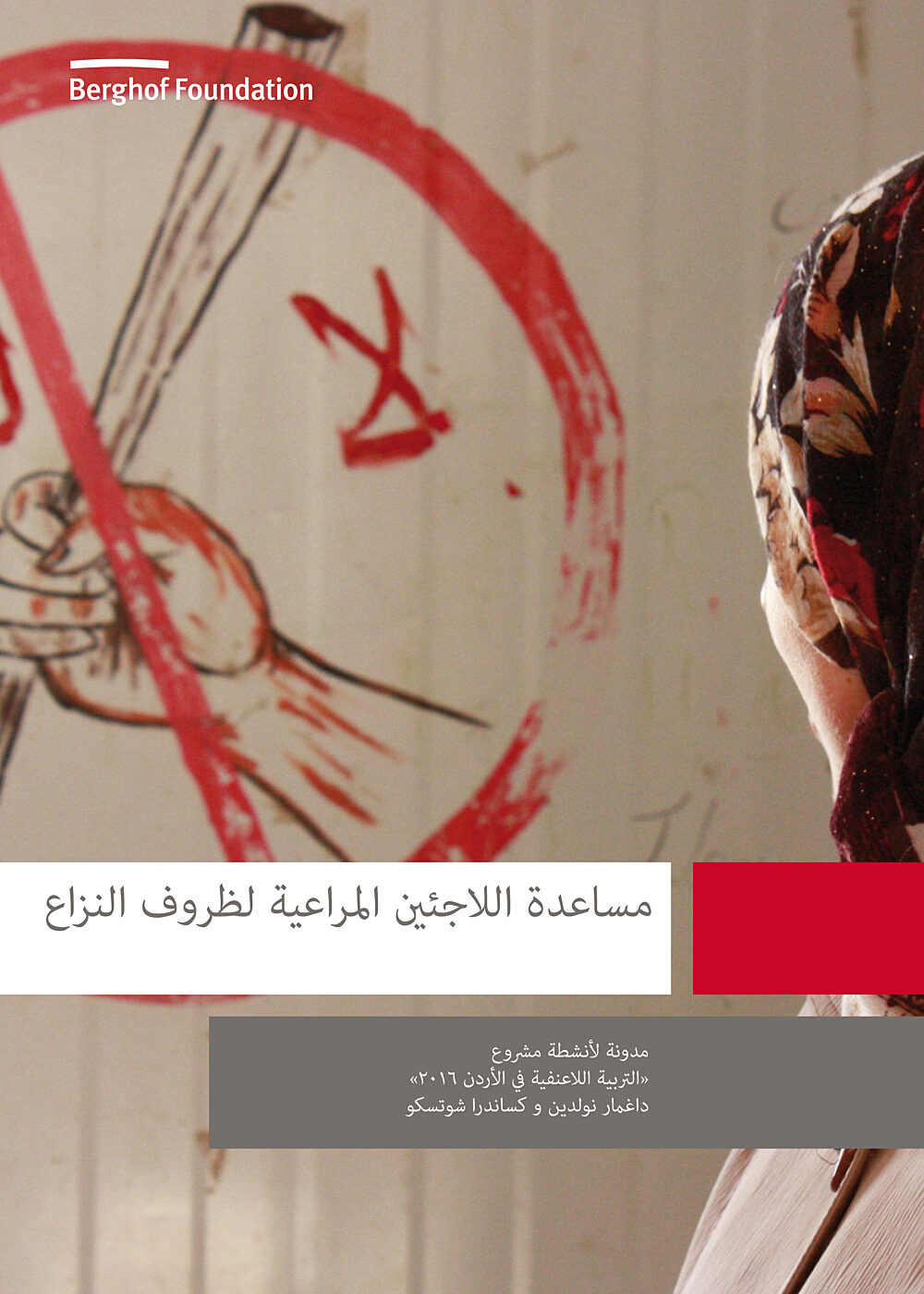
مساعدة الالجئني املراعية لظروف النزاعمدونة ألنشطة مرشوع
[خلاصة الترجمة الآلية]
تعتبر حساسية الصراع اليوم مفهومًا مشهورًا وراسخًا في مجالات التعليم والتعاون الإنمائي والصحافة. يعتمد المفهوم على افتراض أن كل عمل بشري ، حسن النية أم لا ، هو شكل من أشكال التدخل في سياق معين ، وبالتالي يتفاعل معه. ونتيجة لذلك ، لا يمكن فهم أي إجراء على أنه محايد لأنه يحتوي على كليهما ، إمكانية التسبب في النزاعات أو تفاقمها ، ولكن أيضًا القدرة على تعزيز السلام وتقويته. حتى الآن ، تم تطبيق المفهوم بشكل أساسي في السياقات المهنية في مناطق الأزمات والصراع السابقة والحالية. ومع ذلك ، ترى مؤسسة Berghof أنه من المفيد للغاية تطبيقه على وجه التحديد في مجال المساعدة المهنية والتطوعية للاجئين ، حيث غالبًا ما يتبع الإجراءات حسنة النية تصورات خاطئة وإحباطات قد تتوج باستخدام العنف ، بدلاً من المتصور. النتيجة. ساهمت التجارب الجيدة لمؤسسة Berghof Foundation في تنسيق ورشة عمل حول مساعدة اللاجئين الحساسة للنزاع للمتطوعين العاملين في الميدان في ألمانيا والتعليقات الإيجابية التي تلقاها المشاركون في ورشة العمل ، في تطوير شكلين مختلفين من ورش العمل النموذجية حول مساعدة اللاجئين الحساسة للنزاع في الأردن.
- Year2016
- Author(s)Dagmar Nolden, Cassandra Schützko
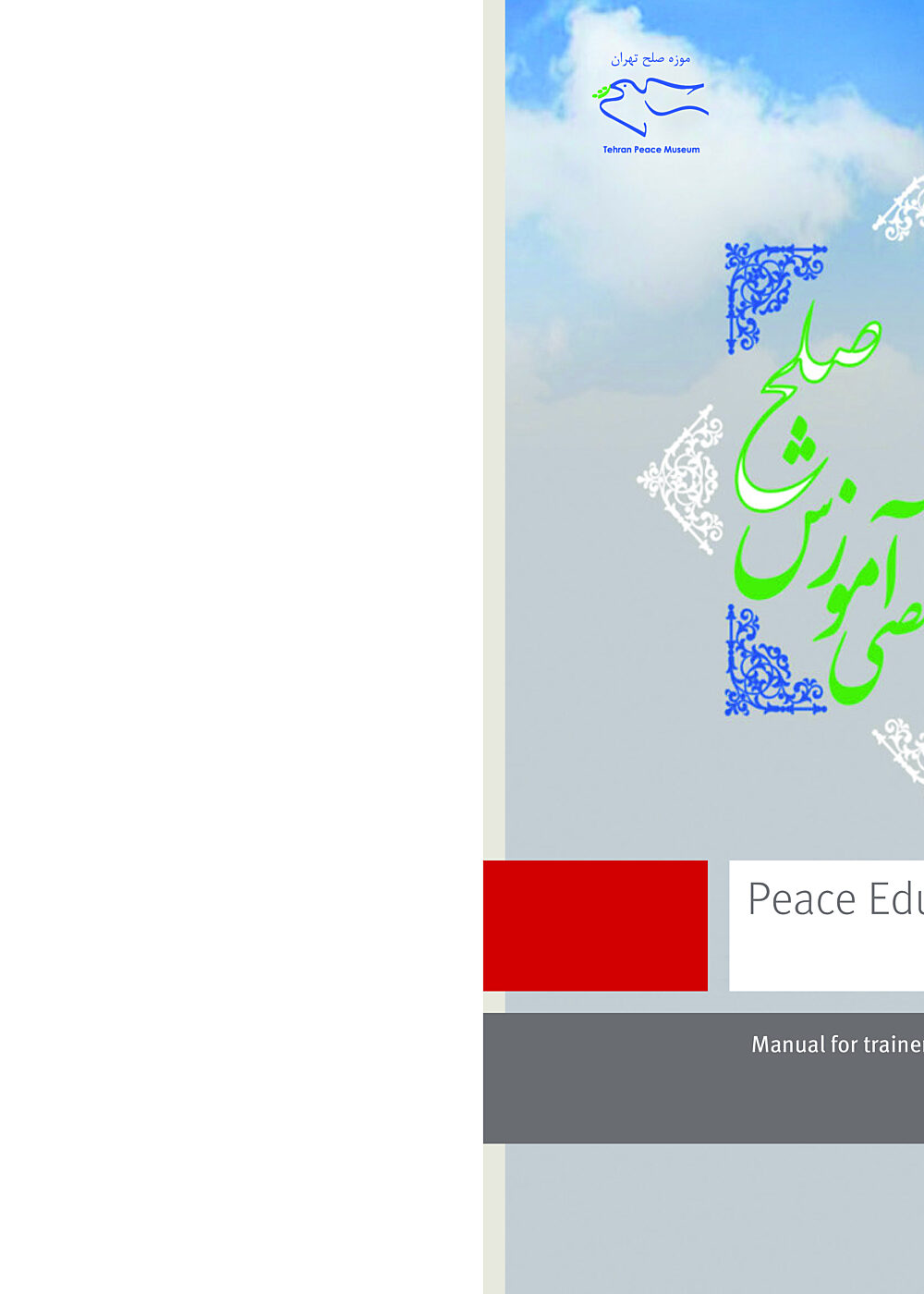
Promoting Direct and Structural Peace Education in IranPeace Education Course - Manual for Trainers
The peace education manual is the result of the cooperation between Berghof Foundation and the Tehran Peace Museum as part of the project “Promoting Peace Education in Iran”. It covers the main topics peace and peace education, violence and nonviolence, conflict and conflict transformation as well as global citizenship. Each section includes worksheets, ideas for the course conception and background material. The manual was specifically developed for Iran, but may also be used in other contexts as an introductory course to peace education.
- Year2016
- Author(s)Isabella Bauer, Isabella M. Bauer, Uli Jäger, Yalda Khosravi, Elaheh Pooyandeh, Fateme Shadi Afrooz
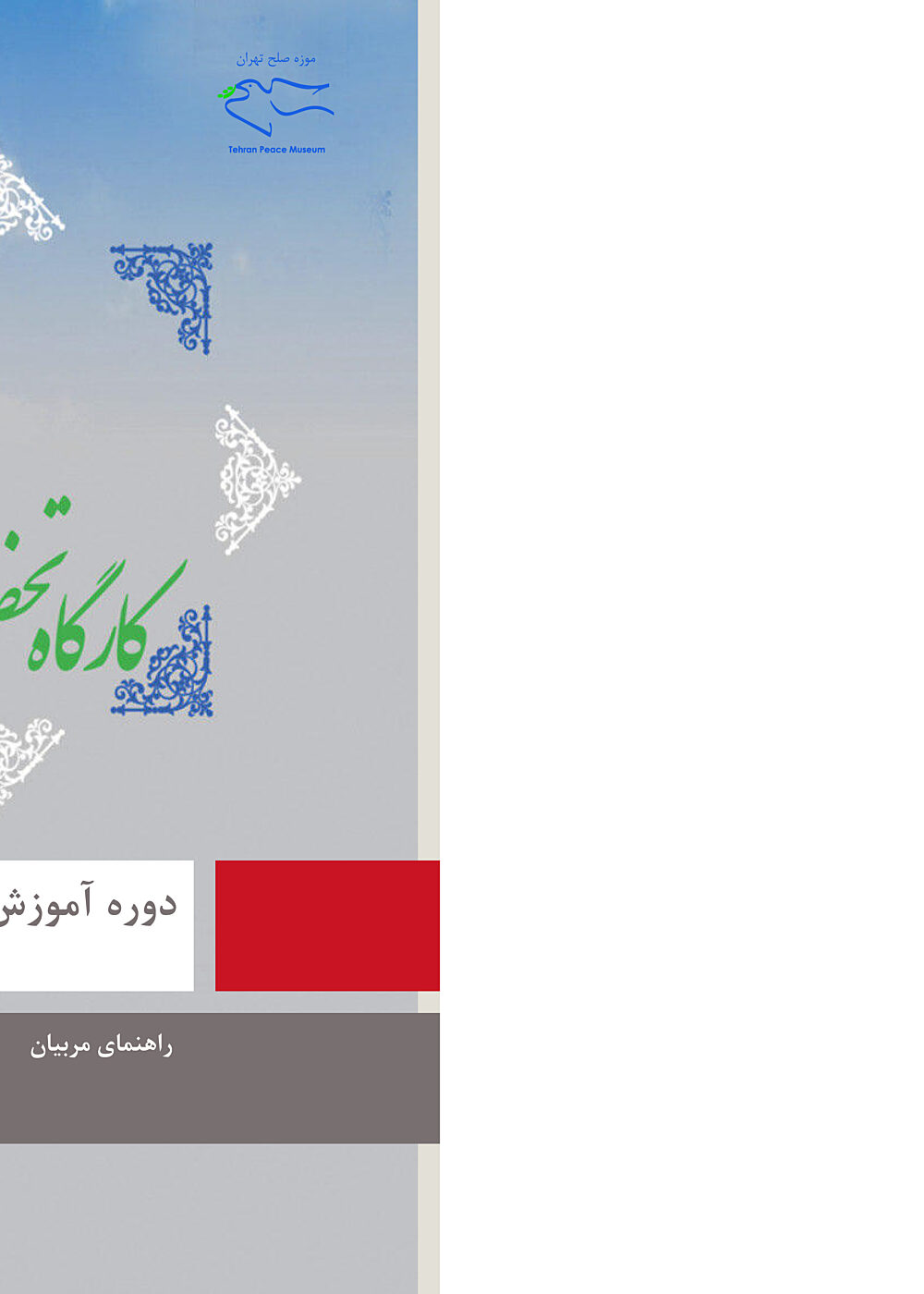
دوره آموزش صلحراهنمای مربیان
[چکیده ترجمه شده ماشینی]
کتابچه راهنمای آموزش صلح نتیجه همکاری بنیاد Berghof و موزه صلح تهران به عنوان بخشی از پروژه "ارتقا Peace آموزش صلح در ایران" است. این عناوین اصلی شامل آموزش صلح و صلح ، خشونت و عدم خشونت ، درگیری و تحول درگیری و همچنین شهروندی جهانی است. هر بخش شامل کاربرگ ، ایده هایی برای ایده پردازی دوره و مطالب پیش زمینه است. این کتابچه راهنما به طور خاص برای ایران تهیه شده است ، اما ممکن است در زمینه های دیگر به عنوان دوره مقدماتی آموزش صلح نیز مورد استفاده قرار گیرد.
- Year2016
- Author(s)Isabella Bauer, Isabella M. Bauer, Uli Jäger, Elaheh Pooyandeh, Fateme Shadi Afrooz, Yalda Khosravi
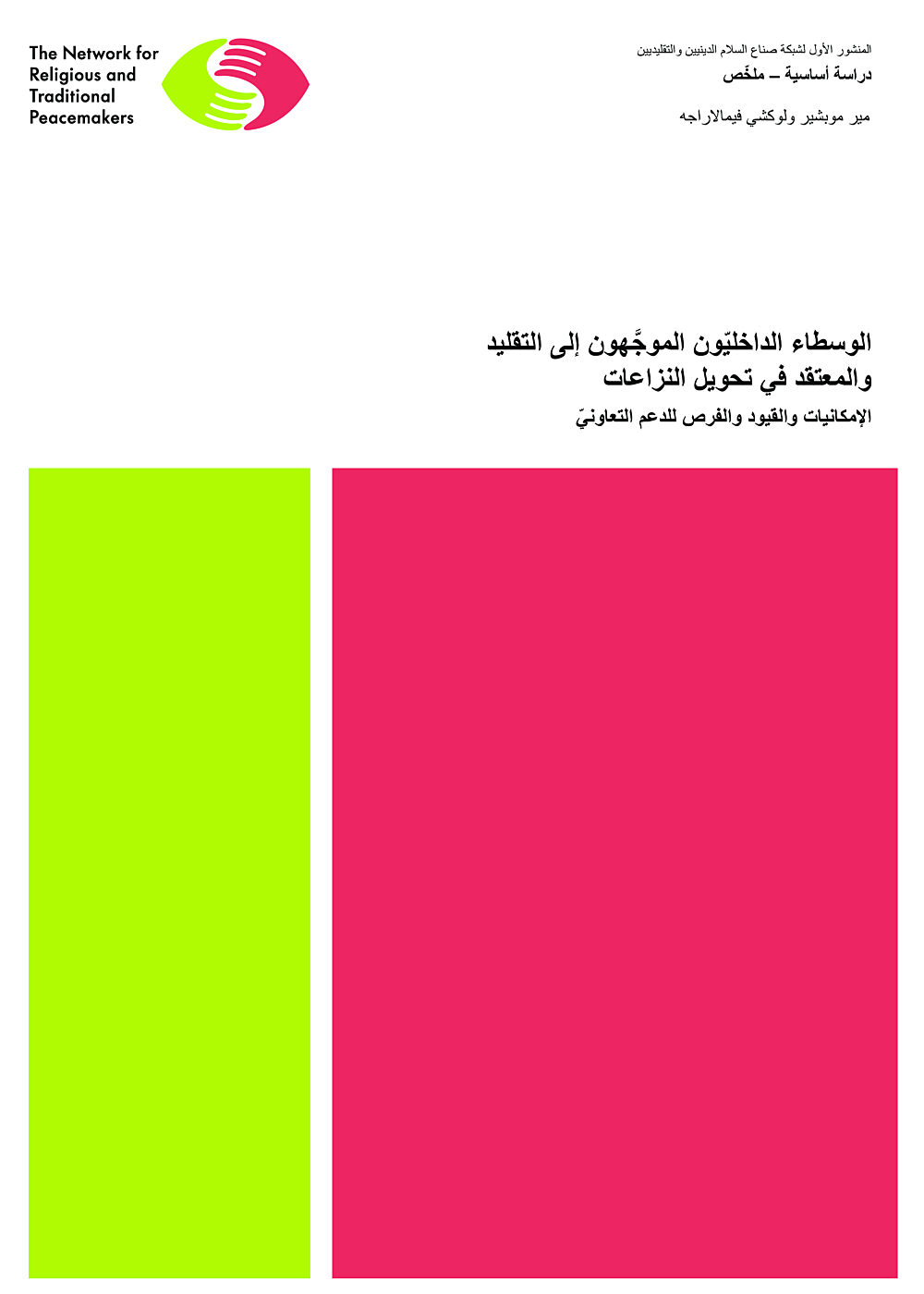
الوسطاء الداخلي َّ ون الموجهون إلى التقليد والمعتقد في تحويل النزاعاتاإلمكانيات والقيود والفرص للدعم التعاوني
[ترجمة آلية الملخص]
تم إعداد هذه الدراسة حول الوسطاء الداخليين ذوي التوجهات الدينية والتقاليد (TFIMs) باستخدام المعرفة الموجودة حول الوسطاء المطلعين وبناء السلام المحلي الموجه نحو التقاليد والعقيدة ، والبيانات الأصلية التي تم الحصول عليها من خلال الدراسات الميدانية.
- Year2016
- Author(s)Mir Mubashir, Luxshi Vimalarajah
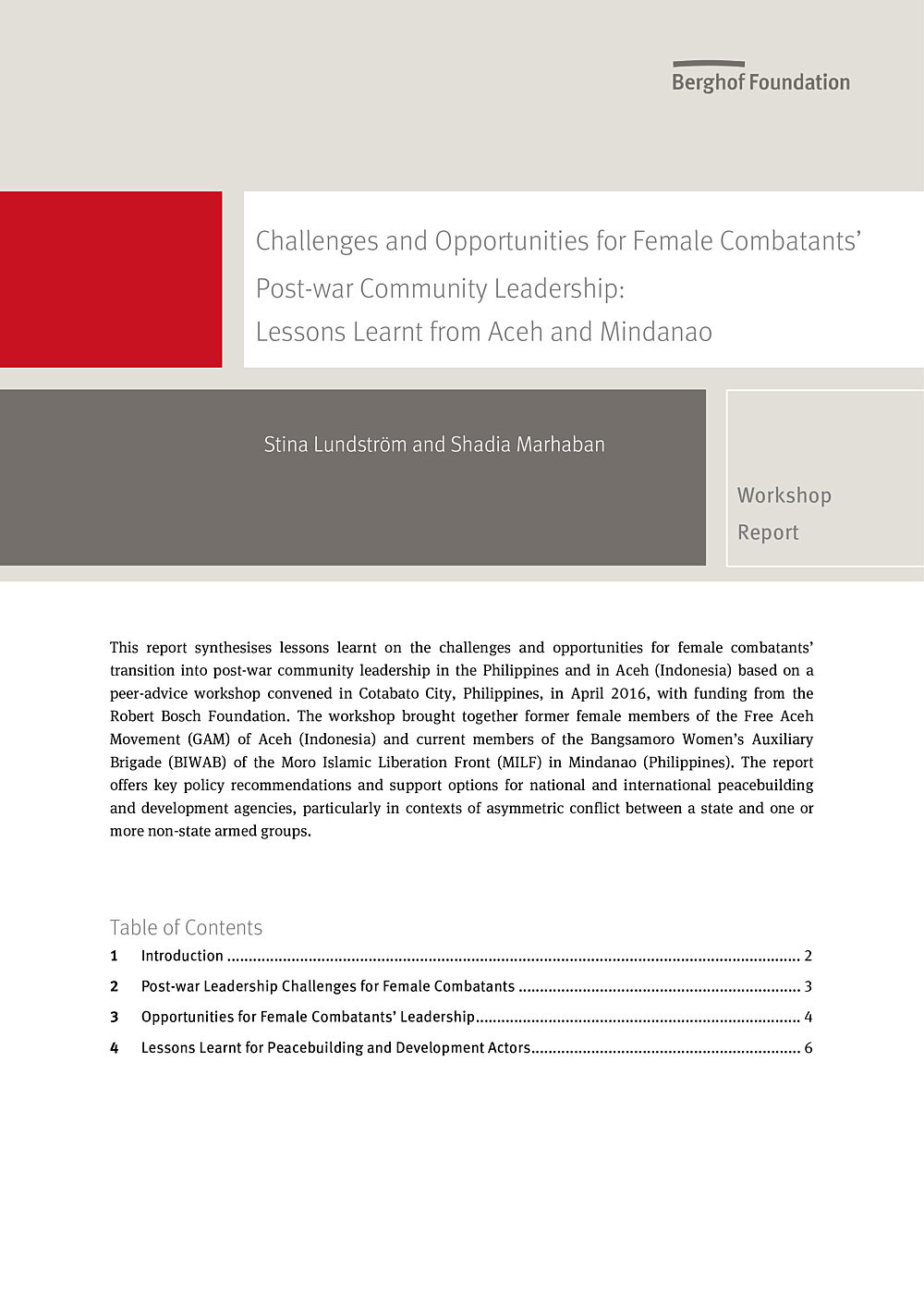
Challenges and Opportunities for Female Combatants’ Post-War Community LeadershipLessons Learnt from Aceh and Mindanao (Workshop Report)
This report synthesises lessons learnt on the challenges and opportunities for female combatants’ transition into post-war community leadership in the Philippines and in Aceh (Indonesia) based on a peer-advice workshop convened in Cotabato City, Philippines, in April 2016, with funding from the Robert Bosch Foundation. The workshop brought together former female members of the Free Aceh Movement (GAM) of Aceh (Indonesia) and current members of the Bangsamoro Women’s Auxiliary Brigade (BIWAB) of the Moro Islamic Liberation Front (MILF) in Mindanao (Philippines). The report offers key policy recommendations and support options for national and international peacebuilding and development agencies, particularly in contexts of asymmetric conflict between a state and one or more non-state armed groups.
- Year2016
- Author(s)Stina Lundström, Shadia Marhaban
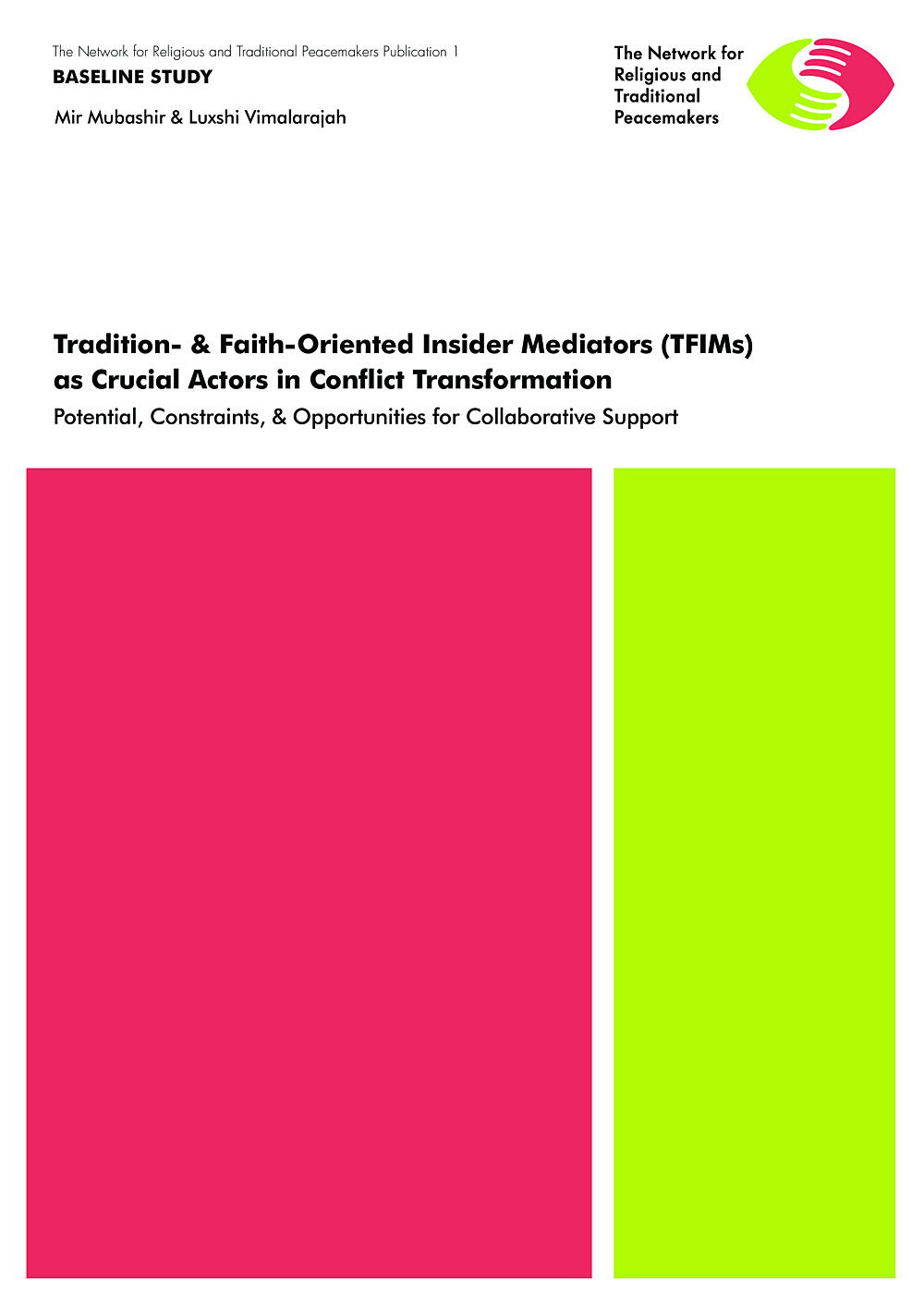
Tradition- & Faith-Oriented Insider Mediators (TFIMs) as Crucial Actors in Conflict TransformationPotential, Constraints, & Opportunities for Collaborative Support (Baseline Study)
This study on tradition- and faith- oriented insider mediators (TFIMs) has been produced using both existing knowledge on insider mediators and tradition- and faith-oriented local peacebuilding, and original data acquired through field studies.
- Year2016
- Author(s)Mir Mubashir, Luxshi Vimalarajah
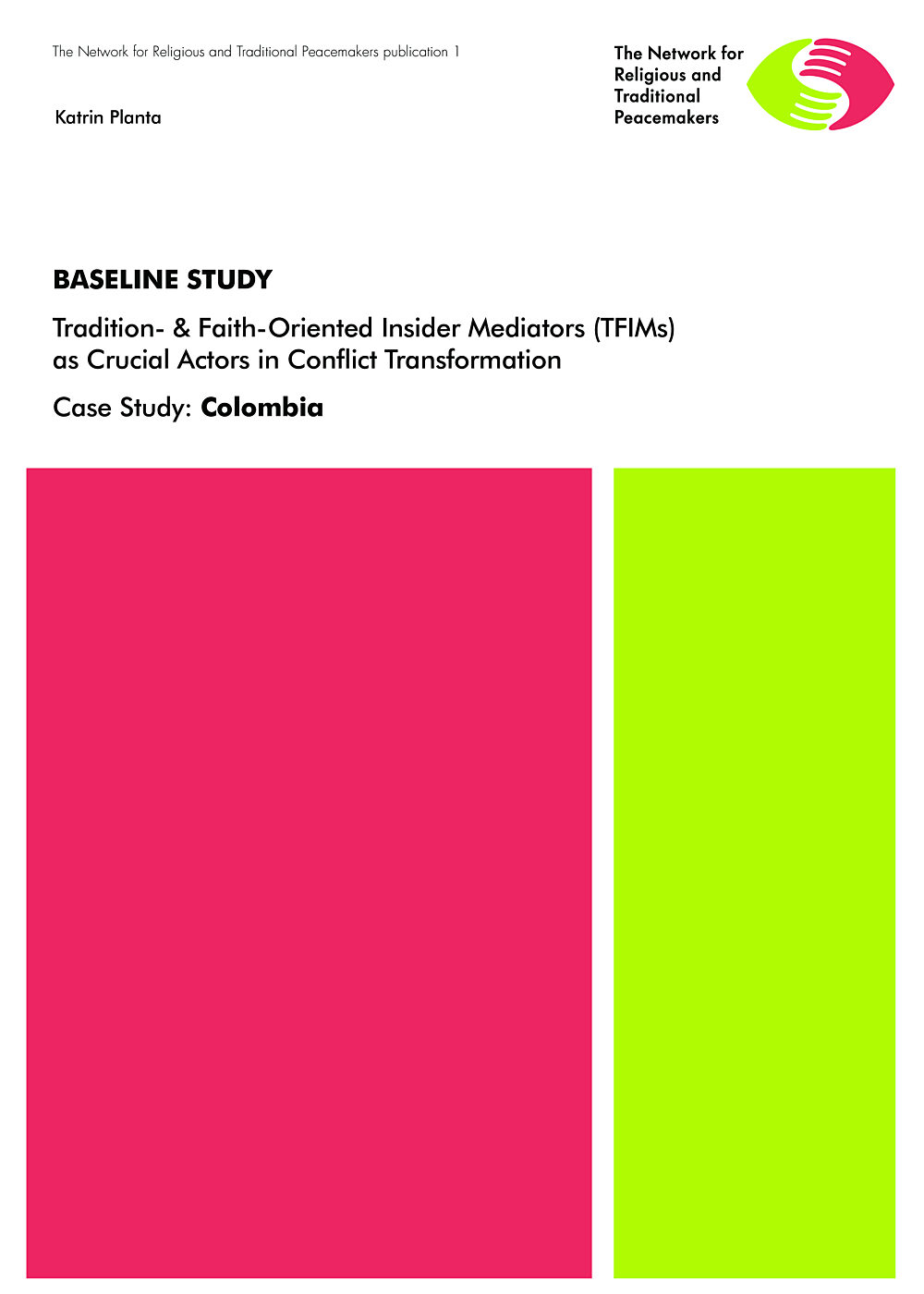
Tradition- & Faith-Oriented Insider Mediators (TFIMs) as Crucial Actors in Conflict TransformationCase Study: Colombia
This case study on tradition- and faith- oriented insider mediators (TFIMs) in Colombia has been produced using both existing knowledge on insider mediators and tradition- and faith-oriented local peacebuilding, and original data acquired through field studies.
- Year2016
- Author(s)Katrin Planta
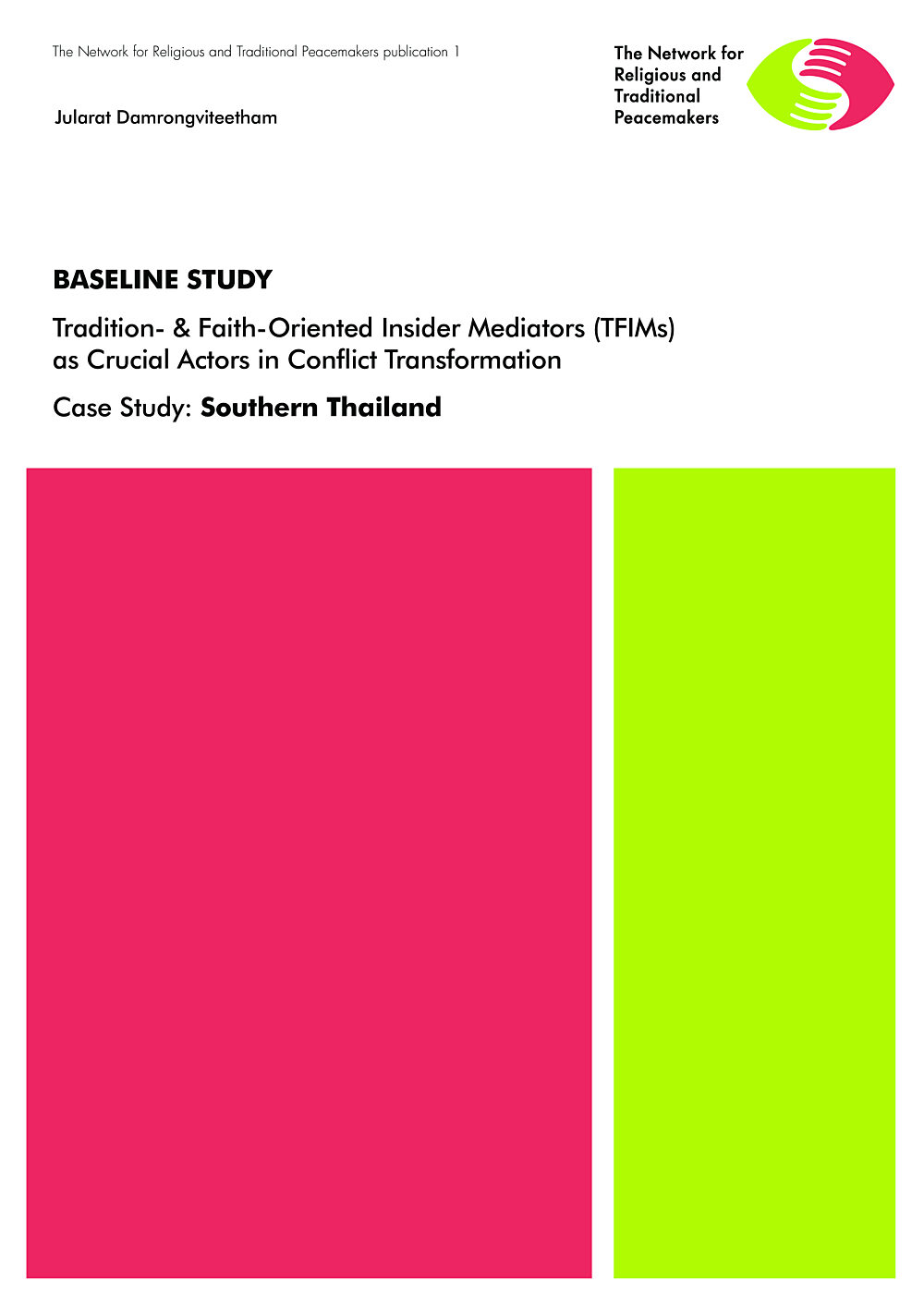
Tradition- & Faith-Oriented Insider Mediators (TFIMs) as Crucial Actors in Conflict TransformationCase Study: Southern Thailand
This case study on tradition- and faith- oriented insider mediators (TFIMs) in Southern Thailand has been produced using both existing knowledge on insider mediators and tradition- and faith-oriented local peacebuilding, and original data acquired through field studies.
- Year2016
- Author(s)Jularat Damrongviteetham